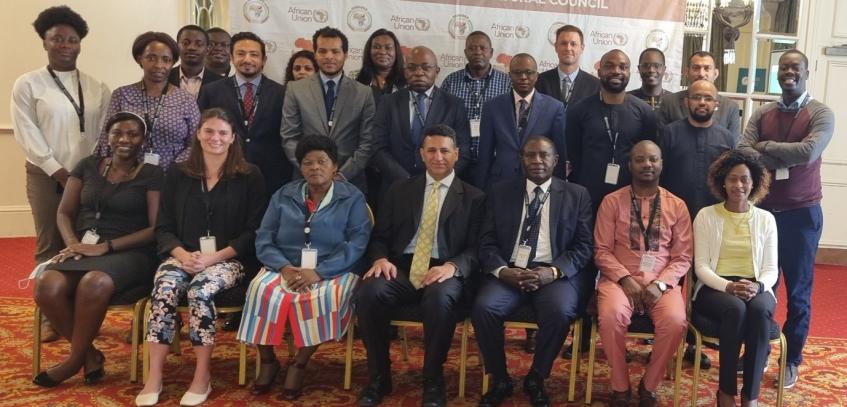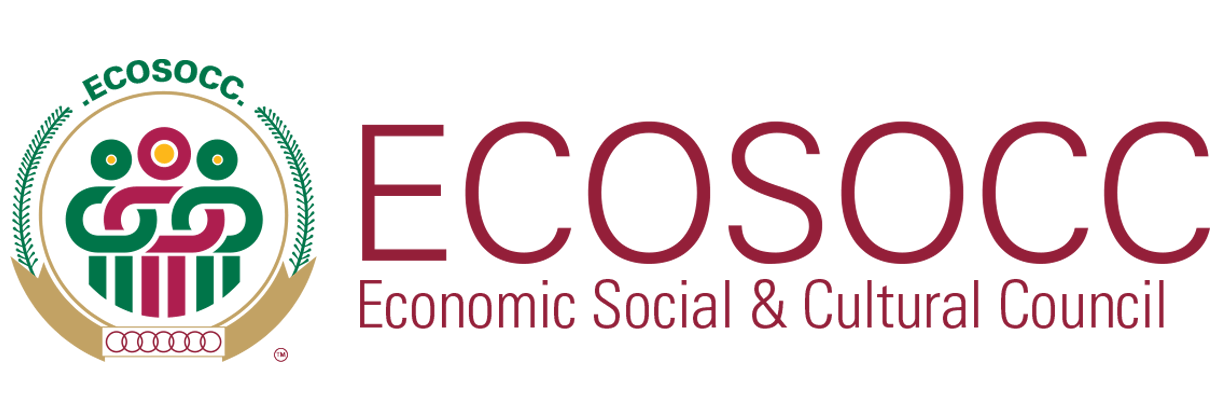As the AU Organ charged with coordinating civil society engagement, ECOSOCC is often the primary point of contact for civil society organizations seeking to collaborate with an organ or institution of the Union. In this regard AU Executive Council of the African Union, by means of Decision EX.CL/924(XXVII), mandated ECOSOCC as an Advisory Organ of the Union and in close consultation with the AU Commission, AU Organs and member states; to pursue a harmonized mechanism and clear criteria for the granting of AU consultative and observer status to CSOs in Africa.
As part of this work, ECOSOCC has undertaken an expansive series of consultations with diverse stakeholders, including AU organs, RECs, and civil society organizations. The latest such consultation was held in April 2022 to solicit inputs from relevant AU organs and institutions with particular regard to existing mechanisms being used to engage with CSOs.
The consultation also increased the mutual understanding of the mandates and programmatic agenda of ECOSOCC and other organs, institutions and agencies on the process of the harmonised CSO accreditation mechanism; gathered inputs and alignment from other AU Organs and ECOSOCC into the development of the harmonised CSO accreditation mechanism and user requirements for the AU CSO accreditation portal.
Speaking at the opening session, Ambassador Amr Aljowaily, Strategic Advisor to the Deputy Chairperson, AUC emphasized that harmonizing the accreditation mechanism was very timely to building the “Africa we want” noting that, a successful meeting would directly contribute to the AU’s Agenda 2063 and the next 10-year plan of the AU.
Amb. Aljowaily reiterated the AUC’s commitment towards strengthening ties with an accredited civil society and diaspora, recently reflected through its active participation in the Global Diaspora Summit held earlier this week in Dublin.
ECOSOCC Presiding Officer, Denise Kodhe, highlighted the importance of the meeting as a response to the Executive Council Decision EX/CL 890, which calls on the ECOSOCC to collaborate with the AUC and AU member states to actively pursue a harmonized mechanism and set clear criteria for granting of AU consultative/observer status to CSOs in Africa; calling on all stakeholders to take ownership of the process.
ECOSOCC Head of Secretariat, William Carew noted the role of CSOs in the political and social development of Africa. Quoting articles 5(i) and 22 of the ECOSOCC Statutes, he reiterated the mandate of ECOSOCC, the creation of its relevant institutional structures, and capacity that are crucial to carrying out its functions; one of which is creating a harmonized accreditation mechanism for granting CSOs consultative status.
‘’As a technical consultation, it is vital to get this process right, as this has been a long call that started in the days of the OAU. There is also a need to create an institutional mechanism for flow of information for these documents, especially appointing focal persons in each organ/institution to take leadership for this process,’’ he said.
In attendance at the meeting were representatives from the ECOSOCC Secretariat, AUC, AU Organs and Institutions, and consultants.





